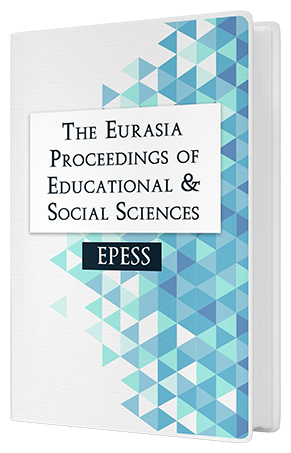The Investigation of Future Expectations of Individuals Graduated from the Department of Child Development
DOI:
https://doi.org/10.55549/epess.1223260Keywords:
Future expectation, Child development, Finding a job, Good life, Fondness for childrenAbstract
The purpose of this study is to identify the future expectations of graduates who have graduated from the child development undergraduate department and who are not currently assigned to their profession. Phenomenological pattern, a qualitative research method, was utilized in the study. The study was conducted with 14 graduated from the department of child development, 13 of whom were female and 1 male, who were preparing for the Public Personnel Selection Examination (KPSS) in a private teaching institution located in the Eastern Anatolia Region of Turkey. Participants were chosen using criterion sampling, one of the purposive sampling methods. The research data was collected through semi-structured interviews. Descriptive and content analysis methods were used to analyze the data. The gathered data were coded, categorized into themes, and evaluated. When the opinions of the individuals who graduated from the child development department about their future expectations are examined; it is detected that the participants chose to study in this department for various reasons, including a fondness for children, the ease of getting a job, and having studied the same subject in their previous educational life, they have fears for the future, they want to be in a positive social environment in the future, they have professional and career objectives for their field, desire a prosperous economic future, question the criteria for appointment or finding a job in their field, have a tendency to come up with alternate solutions for getting hired or finding a job, place importance on personal growth in order to live a good life, and have various plans for their personal life.Downloads
Published
Issue
Section
License
Copyright (c) 2022 The Eurasia Proceedings of Educational and Social Sciences

This work is licensed under a Creative Commons Attribution-NonCommercial-ShareAlike 4.0 International License.
The articles may be used for research, teaching, and private study purposes. Any substantial or systematic reproduction, redistribution, reselling, loan, sub-licensing, systematic supply, or distribution in any form to anyone is expressly forbidden. Authors alone are responsible for the contents of their articles. The journal owns the copyright of the articles. The publisher shall not be liable for any loss, actions, claims, proceedings, demand, or costs or damages whatsoever or howsoever caused arising directly or indirectly in connection with or arising out of the use of the research material. All authors are requested to disclose any actual or potential conflict of interest including any financial, personal or other relationships with other people or organizations regarding the submitted work.




